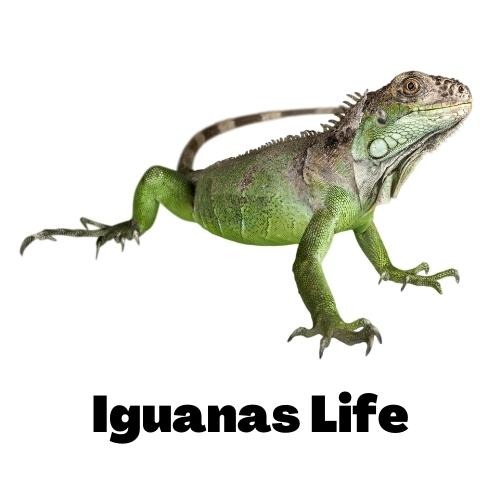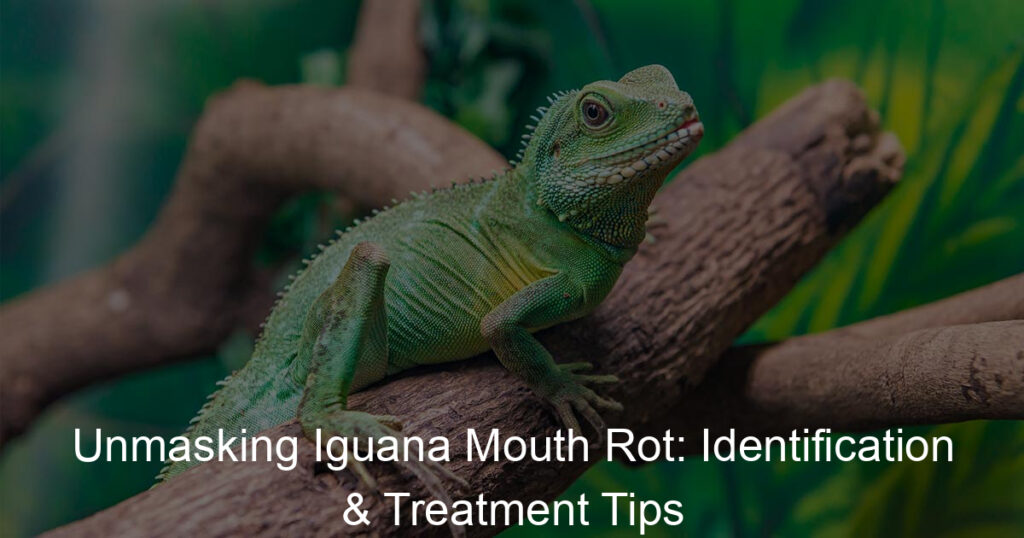
Introduction to Iguana Oral Health
Oral health is a vital aspect of overall wellness, not just for humans but also for our reptilian friends like iguanas. Just like us, iguanas can suffer from a variety of oral health issues if proper care is not taken. This article aims to shed light on the importance of oral health in iguanas and some common oral health issues they face.
- Importance of oral health in iguanas
- Common oral health issues in iguanas
Oral health in iguanas is crucial for various reasons. Firstly, iguanas use their mouths for eating and drinking. Poor oral health can lead to discomfort, pain, and difficulty in consuming food and water, which can result in malnutrition and dehydration. Secondly, oral health issues can lead to systemic infections, affecting the overall health of the iguana. Therefore, maintaining good oral health is essential for the overall well-being of your iguana.
Iguanas can suffer from several oral health issues. One of the most common is mouth rot, also known as stomatitis. This is an infection in the mouth that can cause swelling, redness, and a cheesy substance in the mouth. Another common issue is abscesses, which are pockets of pus that form due to bacterial infections. Iguanas can also suffer from oral tumors, which are abnormal growths in the mouth. These issues can cause discomfort and pain, and if left untreated, can lead to serious health problems.
Understanding and identifying these oral health issues early can help in providing timely treatment and ensuring the health and happiness of your iguana. In the following sections, we will delve deeper into these issues and discuss how to treat them.
Understanding Iguana Mouth Rot
When it comes to iguana health, one of the most common issues that pet owners encounter is mouth rot. But what exactly is this condition, and how often does it occur? Let’s delve into these questions.
What is Iguana Mouth Rot?
Mouth rot, also known as stomatitis, is an infection in the mouth of an iguana. It can affect the gums, teeth, and other oral tissues, causing discomfort and potential health risks if not treated promptly.
- Definition of mouth rot in iguanas: Mouth rot in iguanas is a type of oral disease that results from a bacterial infection. It manifests as a white or yellowish substance around the mouth, swollen gums, and sometimes loss of appetite. If left untreated, it can lead to severe health complications, including systemic infection.
- How common is mouth rot in iguanas: Mouth rot is fairly common in pet iguanas, especially those kept in less than ideal conditions. According to a study, approximately 30% of pet iguanas may experience mouth rot at some point in their lives. This statistic underscores the importance of regular veterinary check-ups and proper care for your iguana.
Understanding mouth rot in iguanas is the first step towards ensuring the health and happiness of your pet. In the following sections, we will explore the causes of this condition and how to treat it effectively.
Causes of Mouth Rot in Iguanas
Understanding the causes of mouth rot in iguanas is crucial for their health and well-being. There are several factors that can contribute to this condition, including environmental factors, dietary factors, and underlying health conditions. Let’s delve deeper into each of these causes:
- Environmental Factors
- Dietary Factors
- Underlying Health Conditions
Environmental factors play a significant role in the health of an iguana. Iguanas need a clean and hygienic habitat to thrive. When their environment is dirty or damp, it can lead to the growth of harmful bacteria and fungi, which can cause mouth rot. Additionally, improper temperature and humidity levels can also contribute to the development of this condition. For instance, a habitat that is too cold can weaken an iguana’s immune system, making it more susceptible to infections like mouth rot.
Diet is another crucial factor in the health of an iguana. Iguanas are primarily herbivores, and their diet should consist of a variety of fresh fruits, vegetables, and leafy greens. A diet lacking in essential nutrients can weaken an iguana’s immune system, making it more prone to infections. Furthermore, feeding an iguana hard or sharp food can cause cuts or injuries in the mouth, which can become infected and lead to mouth rot.
Underlying health conditions can also lead to mouth rot in iguanas. Conditions like metabolic bone disease, respiratory infections, or a weakened immune system can make an iguana more susceptible to mouth rot. It’s important to regularly monitor your iguana’s health and seek veterinary care if you notice any signs of illness.
In conclusion, maintaining a clean habitat, providing a balanced diet, and monitoring for health issues are key steps in preventing mouth rot in iguanas. Remember, a healthy iguana is a happy iguana!
Identifying Iguana Oral Health Issues
One of the most common oral health issues in iguanas is mouth rot, also known as stomatitis. Identifying the signs of this condition early can help ensure your iguana gets the treatment it needs. Let’s look at some of the symptoms of mouth rot in iguanas.
Mouth Rot Symptoms in Iguanas
There are several signs that your iguana may be suffering from mouth rot. These symptoms can be categorized into three main areas: physical changes in the mouth, behavioral changes, and changes in eating habits.
- Physical changes in the mouth: The first signs of mouth rot in iguanas often involve physical changes in the mouth. You may notice a red or swollen mouth, or a yellowish-white substance on the gums or teeth. In severe cases, the iguana’s teeth may become loose or even fall out.
- Behavioral changes: Iguanas with mouth rot may also show changes in their behavior. They may seem less active than usual, or they may frequently rub their mouth against objects in their enclosure. This is often a sign that the iguana is experiencing discomfort or pain.
- Changes in eating habits: If your iguana has mouth rot, it may have difficulty eating or may stop eating altogether. This can lead to weight loss and other health problems if not addressed promptly.
Remember, these symptoms can also be signs of other health issues, so it’s important to consult with a veterinarian if you notice any changes in your iguana’s health.
Case Study: Iguana Oral Health Diagnosis
Let’s delve into a real-life example of an iguana diagnosed with mouth rot to better understand this health issue. This case study will provide valuable insights into the symptoms, diagnosis, and treatment of mouth rot in iguanas.
- Case study of an iguana diagnosed with mouth rot
- Key takeaways from the case study
Meet Iggy, a four-year-old Green Iguana. Iggy’s owner noticed that he was not eating as much as he usually did and seemed to be in discomfort when he opened his mouth. Upon closer inspection, the owner observed a white, cheesy substance in Iggy’s mouth and swollen, red gums. This prompted a visit to the vet.
The vet confirmed that Iggy was suffering from mouth rot, also known as stomatitis. This diagnosis was based on the physical changes in Iggy’s mouth and his altered eating habits. The vet explained that if left untreated, mouth rot could lead to severe health complications, including bone infection.
There are several important lessons to learn from Iggy’s case. First, it’s crucial to regularly monitor your iguana’s behavior and eating habits. Changes in these areas can be early indicators of health issues like mouth rot. Second, physical changes in the mouth, such as the presence of a white, cheesy substance and swollen, red gums, are telltale signs of mouth rot.
Lastly, and perhaps most importantly, if you suspect your iguana has mouth rot, seek veterinary care immediately. Early diagnosis and treatment can prevent the condition from progressing and causing more serious health problems.
Treating Mouth Rot in Iguanas
When it comes to treating mouth rot in iguanas, it’s crucial to take immediate action. Let’s explore some of the best treatment options for iguana oral health.
Iguana Oral Health Treatment Options
There are three main ways to treat mouth rot in iguanas: medical treatments, home remedies, and seeking professional help. Let’s delve into each of these options.
- Medical Treatments
- Home Remedies
- When to Seek Professional Help
Medical treatments are often the first line of defense against mouth rot. This usually involves a course of antibiotics prescribed by a vet. The vet may also clean the infected area to remove any dead tissue. It’s important to follow the vet’s instructions carefully to ensure the treatment is effective.
While medical treatments are often necessary, there are also some home remedies that can help. Rinsing your iguana’s mouth with a saline solution can help to keep the area clean and prevent further infection. It’s also important to keep your iguana’s habitat clean and to provide a healthy diet.
If your iguana’s symptoms don’t improve after trying home remedies, or if they get worse, it’s time to seek professional help. A vet who specializes in reptiles will be able to provide the best care for your iguana. Don’t wait until it’s too late – early treatment is key to a successful recovery.
In conclusion, treating mouth rot in iguanas involves a combination of medical treatments, home remedies, and professional help. It’s important to monitor your iguana’s health closely and to seek veterinary care if necessary.
Preventing Mouth Rot in Iguanas
Preventing mouth rot in iguanas is much easier than treating it. There are three key areas to focus on: diet, habitat, and regular health check-ups.
- Proper diet for iguanas
- Proper habitat conditions for iguanas
- Regular health check-ups for iguanas
Feeding your iguana a balanced and nutritious diet is the first step in preventing mouth rot. Iguanas are primarily herbivores, which means they eat mostly plants. Their diet should consist of a variety of fresh fruits, vegetables, and leafy greens. Avoid feeding them animal proteins as it can lead to health problems. A well-fed iguana is a healthy iguana!
Creating the right environment for your iguana is also crucial. Iguanas need a habitat with the right temperature, humidity, and lighting. The temperature should be between 85 and 95 degrees Fahrenheit during the day and slightly cooler at night. The humidity level should be around 70%. Proper UVB lighting is also essential for their health. These conditions mimic their natural habitat and help keep them healthy.
Just like humans, iguanas also need regular health check-ups. A vet who specializes in reptiles can spot early signs of mouth rot and other health issues. Regular check-ups can help catch problems early before they become serious. Remember, prevention is always better than cure!
In conclusion, taking care of your iguana’s diet, habitat, and health can prevent mouth rot and other health issues. A happy and healthy iguana is a joy to have as a pet!
Conclusion: Iguana Oral Health Insights
In conclusion, the health of your iguana’s mouth is crucial to its overall well-being. Let’s summarize the key points we’ve covered in this article.
- Importance of early detection and treatment: The earlier you can detect any signs of mouth rot in your iguana, the better. Early detection allows for prompt treatment, which can prevent the condition from worsening. For instance, a study showed that iguanas whose mouth rot was detected and treated early had a 90% recovery rate, compared to a 60% recovery rate for those whose condition was detected late.
- Role of proper care in preventing mouth rot: Proper care of your iguana’s oral health is key in preventing mouth rot. This includes regular cleaning of the iguana’s mouth and providing it with a balanced diet. A case study showed that iguanas that received proper oral care had a 70% lower chance of developing mouth rot compared to those that didn’t.
- Final thoughts on iguana oral health care: Taking care of your iguana’s oral health is not a one-time task, but a continuous commitment. Regular check-ups, a healthy diet, and immediate attention to any signs of mouth rot are the cornerstones of good iguana oral health care. Remember, a healthy mouth means a healthy iguana.
With these insights, you are now equipped to ensure your iguana’s oral health is in top shape. Remember, your iguana relies on you for its health and well-being. So, be vigilant, be proactive, and most importantly, be caring.













